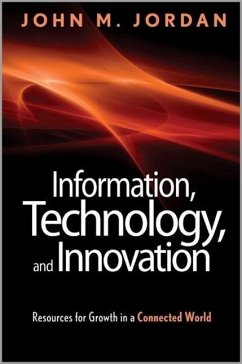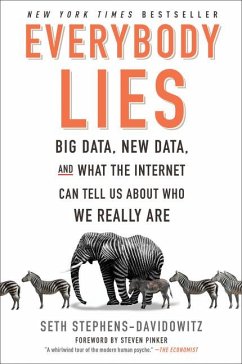
How Societies Embrace Information Technology
Lessons for Management and the Rest of Us

PAYBACK Punkte
20 °P sammeln!
This book discusses how computers are shaping contemporary society, with a tight focus on the role of corporations and governments. It is aimed at government policymakers interested in economic development and at private-sector managers who routinely make decisions to acquire and use information technology, now a worldwide expenditure of over $2 trillion annually. The book will also interest a wide range of academics concerned with the sociology, history, economics, and the effects of IT on contemporary society, ands to the general trade market. A truly global look at IT deployment and useNo t...
This book discusses how computers are shaping contemporary society, with a tight focus on the role of corporations and governments. It is aimed at government policymakers interested in economic development and at private-sector managers who routinely make decisions to acquire and use information technology, now a worldwide expenditure of over $2 trillion annually. The book will also interest a wide range of academics concerned with the sociology, history, economics, and the effects of IT on contemporary society, ands to the general trade market. A truly global look at IT deployment and use
No technology in our history has spread as fast as computers and their digital technologies. In How Societies Embrace Information Technology, leading IT authority James Cortada examines how this phenomenon is shaping contemporary society, focusing on the role of corporations and governments. By revealing what history teaches about the adoption of information technologies, Cortada prepares business and government leaders to spot new trends and successfully develop strategies for implementing and managing emerging technologies. Coverage includes:
Summaries of the new best practices based on sixty years of historical experience, all research-based
How technology spread so quickly and completely across the globe
A look at the decision-making process of managers in the private and public sectors
How governments leverage IT to improve their national economies
An examination of the "Information Age" and whether it actually exists
The most current developments in IT
This authoritative reference is ideal for government policymakers and for private-sector managers who routinely make decisions to acquire and use information technology. It is also aimed at academics concerned with the sociology, history, economics, and the effects of IT on contemporary society, as well as business schools and engineering and IT professionals serving in management roles or interested in the managerial/user history of IT.
The author's royalties on sales of this book will be donated to the IEEE Computer Society's Educational Activities Board.
No technology in our history has spread as fast as computers and their digital technologies. In How Societies Embrace Information Technology, leading IT authority James Cortada examines how this phenomenon is shaping contemporary society, focusing on the role of corporations and governments. By revealing what history teaches about the adoption of information technologies, Cortada prepares business and government leaders to spot new trends and successfully develop strategies for implementing and managing emerging technologies. Coverage includes:
Summaries of the new best practices based on sixty years of historical experience, all research-based
How technology spread so quickly and completely across the globe
A look at the decision-making process of managers in the private and public sectors
How governments leverage IT to improve their national economies
An examination of the "Information Age" and whether it actually exists
The most current developments in IT
This authoritative reference is ideal for government policymakers and for private-sector managers who routinely make decisions to acquire and use information technology. It is also aimed at academics concerned with the sociology, history, economics, and the effects of IT on contemporary society, as well as business schools and engineering and IT professionals serving in management roles or interested in the managerial/user history of IT.
The author's royalties on sales of this book will be donated to the IEEE Computer Society's Educational Activities Board.














